Coronavirus: COVID-19 rules will only eased ‘when virus is truly defeated’
Lockdown laws are set to stay until COVID-19 is beaten, Victorian premier Daniel Andrews has declared, as Donald Trump goes toe-to-toe with the WHO over a vaccine.
Coronavirus
Don't miss out on the headlines from Coronavirus. Followed categories will be added to My News.
- What Australia’s virus-fuelled recession really means
- ‘Super spreader’ COVID-19 strain: What you need to know
Victorian premier Daniel Andrews has declared COVID-19 restrictions will remain in place until the virus is “truly defeated”.
In what appears to be another setback for Victorian businesses, who were hopeful of an easing of restrictions to kickstart the state’s economy, Andrews said his current strategy, as much of the state languishes in stage 4 restrictions, is working.
Ahead of announcing a path out of lockdown on Sunday, Premier Andrews claimed thousands of Victorians were at danger of contracting the virus if the restrictions were not continued.
“Let’s get out of these restrictions and stay out of them. Obviously, that is still a really significant challenge for us,” Mr Andrews said.
“So, as frustrating, as challenging as it is, we need to stay the course on this. [Otherwise] “It would see many, many hundreds, indeed thousands, of Victorians infected with this virus.
“That’s why tomorrow we will outline a roadmap to ease these important restrictions, to ease out of the second wave, once it’s appropriately and properly defeated. Truly defeated. So that we can be sure that the settings we lock in can be defended.

“That is our coronavirus detectives have got not just a fair chance, but that there is a strong likelihood that they are able to actively suppress cases.”
These claims came as Victoria recorded another 76 cases of coronavirus, and 11 deaths overnight, after the state on Friday recorded 81 new cases and 59 deaths.
Queensland recorded one new case on Saturday, bringing to 26 its active cases.
NSW recorded five new cases, with one being a returned overseas traveller and four linked to the growing CBD cluster.
NSW Health confirmed their advice for residents from Sydney Metropolitan, Nepean Blue Mountains and Central Coast regions would be to not visit aged care facilities at the weekend.
Premier Gladys Berejiklian said she was “as disappointed as anybody” about it.
“I’m as disappointed as anybody to get that health advice but I can’t overturn the health advice. We did have hopes … I feel horrible about that,” she said.
“It would be inappropriate for me to overrule the health advice, especially if, heaven forbid, this disease got into one of our aged care facilities.”
TRUMP CLASHES WITH WHO ON VACCINE
Donald Trump has doubled-down on claims a coronavirus vaccine will likely be ready for November, in stark contrast to assertions from the World Health Organisation a game-changing treatment won’t be ready for another 12 months.
In a press conference early Saturday morning AEST, President Trump said “incredible” work was being done in the search for a vaccine in the US and that an effective vaccine could be rolled out within weeks.
That would provide a crucial boost to Trump if it came ahead of the November 3 US general election. Trump’s controversial response to the pandemic has provided ample ammunition for his Democratic rivals and has him behind in polling.

Many possible vaccines have begun final Phase III trials but WHO spokeswoman Margaret Harris said a “realistic” timeframe for a treatment would be mid-2021.
US READYING FOR NOVEMBER VACCINE ROLLOUT
It was revealed this week that Washington has urged US states to get ready for a potential coronavirus vaccine rollout by November 1, sparking concerns President Donald Trump’s administration is rushing to begin distributing a vaccine before the November 3 elections.
The US Food and Drug Administration has also raised the possibility that a vaccine might be given emergency authorisation before the end of trials.
The FDA has faced allegations from the medical community, which it has denied, that it is bowing to political pressure from Trump, who is trailing Democratic challenger Joe Biden in the polls.
MORE: Democrats’ gaffes leave party’s COVID-19 credentials in tatters
Aussie home prices to fall ‘by at least 10 per cent’
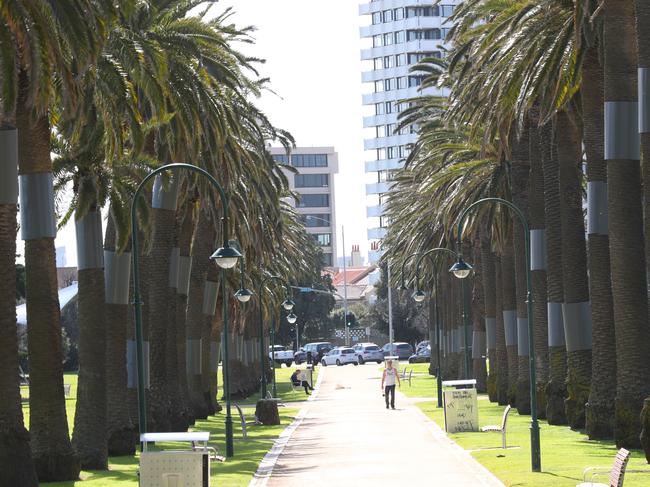
However, the World Health Organisation has said it did not expect widespread immunisation against the novel coronavirus until mid-2021, tempering hopes just as research revealed encouraging early results from a Russian vaccine.
The virus which has killed nearly 870,000 people worldwide continues to spread, with Italy’s flamboyant former prime minister Silvio Berlusconi now in hospital after becoming the latest high-profile figure to test positive for COVID-19.
The UN health agency welcomed the fact that a “considerable number” of vaccine candidates had entered final stage trials, which typically involve tens of thousands of people.
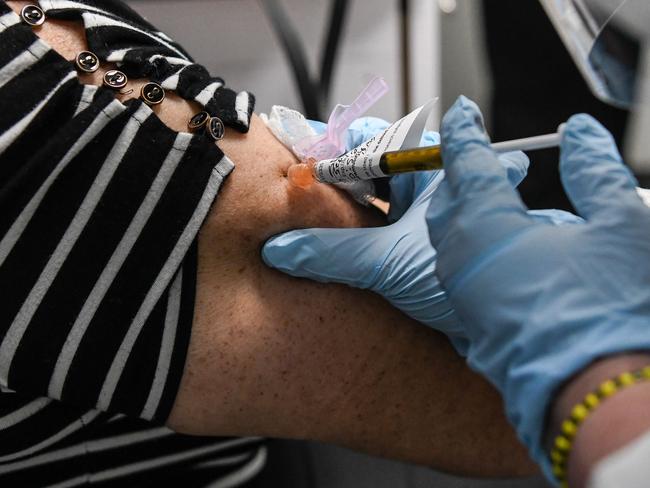
But “in terms of realistic timelines, we are really not expecting to see widespread vaccination until the middle of next year,” WHO spokeswoman Margaret Harris said.
And WHO chief Tedros Adhanom Ghebreyesus said the agency would not endorse a vaccine if it is not effective and safe.
Russia has already approved a vaccine, and research published in The Lancet medical journal on Friday said patients involved in early tests developed antibodies with “no serious adverse events”.
But scientists cautioned the trials were too small — just 76 participants — to prove safety and effectiveness.
Washington has also urged US states to get ready for a potential vaccine rollout by November 1, sparking concerns Donald Trump’s administration is rushing to begin distributing a vaccine before the November 3 election.
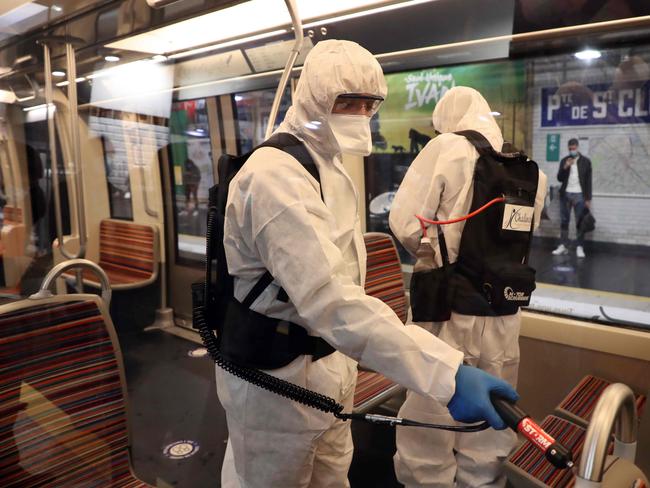
Under normal procedures, test administrators must wait for months or years to verify that vaccine candidates are safe and efficacious.
But there has been massive pressure to roll out a vaccine quickly as the pandemic continues to take its toll.
It comes as France registered nearly 9000 new coronavirus cases over the past 24 hours, the highest daily figure since the pandemic swept into the country last March, the country’s health agency said on Friday (local time).
The total of 8975 reported infections from Thursday to Friday came as authorities have increased testing capacities nationwide, but the caseload was still sharply above the 7000 seen in recent days.
In addition, 53 new outbreak clusters were reported, and 46 patients were placed in intensive care, bringing the current total to 473.
As of September 1, France has registered 30,661 coronavirus deaths, according to the Sante Publique France health agency, which warned again on Thursday of an “exponential” increase in new cases.

It said the “R” rate of viral transmission remains at 1.3 nationwide, meaning 10 infected people are infecting 13 others on average.
While more than 90 per cent of fatal cases involve people over 65, “transmission is mainly among young adults”, Sante Publique said.
The latest figures come as Paris and other cities have started requiring face masks in all public areas, including for children above 11 who returned to school this week.
But residents in some cities have been pushing back, seeking eased mask rules in public, for example at night or in areas where crowds do not generally gather.
On Friday, a court in the southeastern city of Lyon ordered the authorities to soften the rules to take “local circumstances” into account, though for now the strict requirement remains in effect.
PM SAYS MAJORITY BORDERS OPEN BY CHRISTMAS
Prime Minister Scott Morrison said the majority of Australian states and territories have agreed to reopen their borders by Christmas, with only one refusing.
National cabinet will move to a coronavirus “hot spot model” as part of a plan to reopen borders by December.
“Western Australia has a very different border and a very different economy than most of the other states and territories where these decisions have been made,” Mr Morrison said.
The model would standardise what constitutes a city or local government area being defined as a COVID-19 hot spot. Those who live in those areas would not be allowed to cross borders, while freeing up others to travel.
However, the contentious issue of what defines a “hot spot” is yet to be finalised.

Speaking in Canberra, Mr Morrison said: “It means that we need to have a good understanding, and an open data room between states and territories, to know what the incidence of outbreaks are or case numbers are, and the source of those things, so states can make decisions in confidence as part of a plan”.
Mr Morrison said he held talks with NZ Prime Minister Jacinda Ardern about the hot spot proposal.
“If there’s no COVID in Christchurch, and there’s no COVID in Queensland, then there’s no reason both of them can’t come to Sydney,” Mr Morrison said.
“That will mean, I think, an important boost for our tourist economy, whether it’s in NSW or anywhere else.”
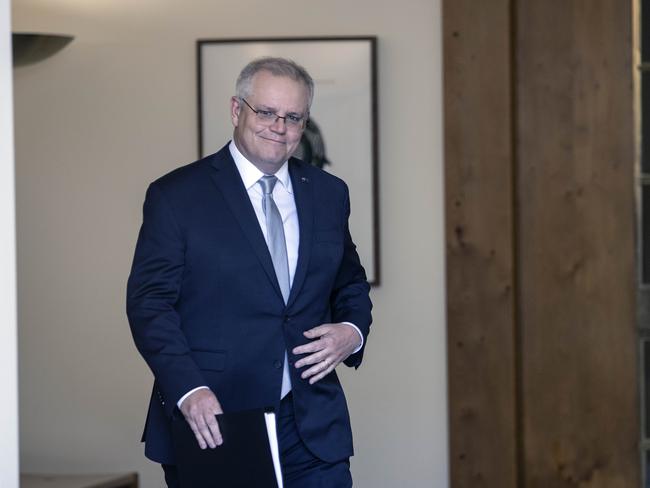
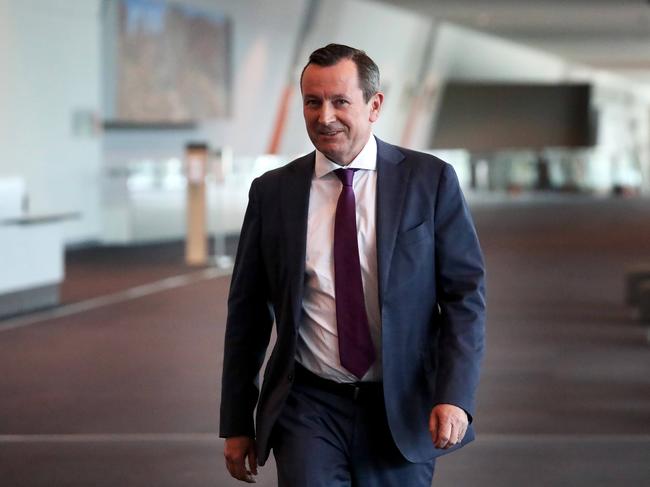
WA Premier Mark McGowan said he will not be agreeing to a hot spot model or a hot spot definition which replaces its successful border controls. Instead, Western Australia will maintain its hard border policy.
“Western Australia has always avoided setting an arbitrary deadline on borders,” Mr McGowan said.
“A date will be set when our health advice recommends it, but that might be some time away. We went through this before and then Victoria happened.
“Opening and closing borders just causes more confusion and it isn’t a good outcome for the state’s economy.
“The Prime Minister and other states respect and understand our decision given the unique factors for Western Australia and the very positive direction our economy is heading.
“Unlike the rest of the country, WA is not currently in a recession. So we won’t be prematurely reopening our borders.
“Unfortunately, the success of the hard border also comes with some consequences, particularly for families who haven’t seen each other for a long period of time. I feel for those people. I also cannot see my mother and father, and my brother, in New South Wales.”
NSW’S PLEA TO QUEENSLAND
Meantime, NSW Premier Gladys Berejiklian has made a plea to Queensland Premier Annastacia Palaszczuk urging her to “join in on the conversations” that other states are having in relation to the easing of border restrictions.
“I would like to see QLD join in on those conversations,” Ms Berejiklian said.
“To date the QLD premier has said she will think about it. I think it’s really critical for the eastern seaboard because we are inextricably linked, the three states in particular.
“I would like to see the QLD premier join those conversations as well.
“In fact, I’m especially concerned about construction jobs and infrastructure jobs between the QLD and NSW border.

“I do hope she will choose to join the conversations that Victoria, South Australia, the Commonwealth and my state will be having.
“I urge the premier to consider carefully the impact the restrictions are having on our communities, on our citizens on either side.”
Ms Berejiklian added that she was excited about the possibility of a travel bubble between New Zealand and Australia later in the year.
“I’m also quite excited about the prospect of New Zealand joining on-board by Christmas in terms of travel arrangements,” she said.
“NSW will be very happy to consider that as soon as possible, in fact if the prime minister and the other states wanted to be more ambitious in that, I’m very excited by what that could mean.
“Obviously, anything we can do in NSW to support our tourism and hospitality sectors and businesses is really critical at this time.”
‘NOT AN ABSOLUTE CONSENSUS’
The Prime Minister also revealed Australia’s national cabinet will not operate as “an absolute consensus” forum, after conflict between the states and territories on the issues of hot spots and border controls during COVID-19.
“We’ve decided that this notion of 100 per cent, absolute consensus on any issue is not a way that the National Cabinet can indeed work,” Mr Morrison said.
“What we will do is we will set out areas where we can come together, and get as many states and territories as possible, to come around that agreement.
“Not everyone has to get on the bus for the bus to leave the station. But it is important the bus leaves the station, and we all agree on that.”
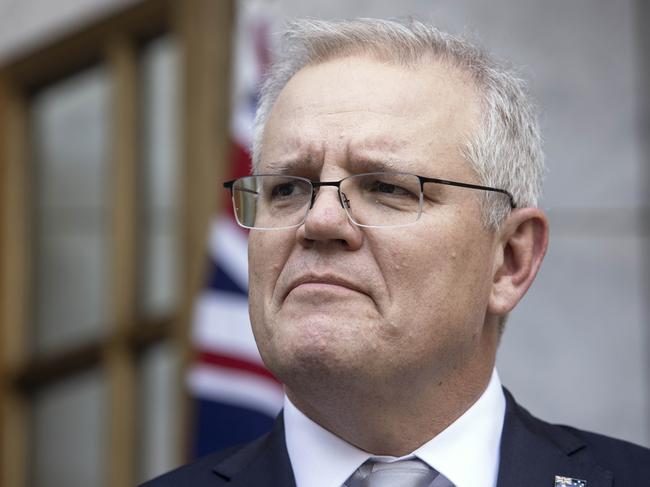
Mr Morrison’s comments came after Friday’s national cabinet meeting, where he said the way the system operated between the states and territories “needed to evolve”.
“We agreed today, seven out of eight states and territories, we agreed that before you know what you’re going to do, you’ve got to agree about where you want to get to,” Mr Morrison revealed.
National cabinet also agreed to increase the limit on Australians returning home from overseas, Mr Morrison said.
“On international arrivals, it was agreed that we needed to further boost the capacity for inbound arrivals into Australia, particularly for those Australians seeking to come home,” Mr Morrison said.
“We noted that New South Wales has been doing all the heavy lifting on this, and they really are at their capacity for the time being.”
BORDER CONTROLS
Western Australia and Queensland rejected Mr Morrison’s plan to reopen state borders, despite NSW and Victoria agreeing.
Western Australia and Queensland are vowing to uphold their restrictions and not consider interstate travel, despite repeated cries from border communities struggling through the harsh coronavirus measure.
While Queensland recorded no new cases overnight and extended its border bubble to include the NSW town of Moree, Premier Annastacia Palaszczuk is still facing heavy criticism over the state’s harsh measures.
“If we as a nation can focus on Victoria and NSW, and get everything under control there, then the whole country can open up,” Palaszczuk said today.
“I don’t think anyone would be against that. I don’t think you’d hear criticism from anyone about that.”
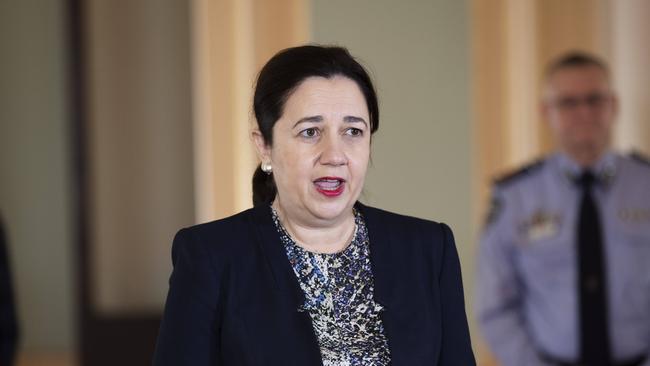
The National Cabinet meeting was dominated by discussions around border towns and issues including healthcare, education and employment being key issues in the border debate.
Despite the setbacks, Morrison said he would “continue to exercise patience” with state premiers and chief ministers.
“I will continue to recognise the states are all coming from different situations. They may not all come together at first or at once, but it is important we provide the way forward so they can all join up. Sometimes you have to rebuild things one brick at a time,” Mr Morrison told The Australian.
“My immediate priority is to ensure that Australians receive medical care where and when they need it. That is a critical priority and we need to work harder to prevent these horrific and cruel outcomes, whether borders are up or borders are down.”
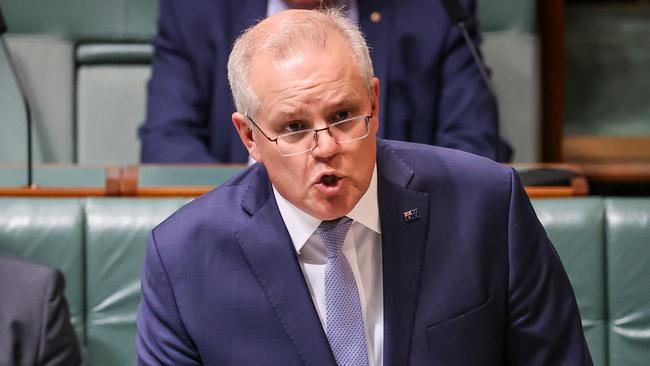
It came as Victoria recorded 81 new cases of coronavirus in the past 24 hours, and a further 59 deaths.
Of the 59 deaths, 50 related to deaths that had occurred between July and September but were subject to delayed data reconciliation, three were from earlier this week, and six were recorded in the last 24 hours, Victorian Premier Daniel Andrews said.
Eight new cases were recorded in NSW in the past 24 hours, seven of which were linked to known clusters. The eighth case is already in hotel quarantine.
The NSW government issued an alert for anyone who visited an Aldi store in North Strathfield on September 1, and anyone who vitised Bunnings Padstow on August 27.
ERADICATION OVER SUPPRESSION
A top health expert is calling for the Federal Government to introduced a staged eradication plan to tackle coronavirus rather than working towards suppression.
The Grattan Institute’s Dr Stephen Duckett said that while harsh restrictions will hurt in the short-term, eradication will benefit the economy long-term.
“A lot of Australians already live in states which have zero cases … so certainly it’s achievable,” Duckett said.
“The point is we want governments to set clear targets so people know when they watch the daily announcement about how many daily new cases they know if we’re close or far.”
Duckett said the threshold should be to reach 20 new cases a day, for five consecutive days. The second would be five new cases a day for five days, and finally zero new cases for five days.
MORE NEWS
William, Harry’s poignant tribute to Diana
Star has ‘compassion’ for ‘awkward’ Ellen
PM leaves door open for Tarrant’s return
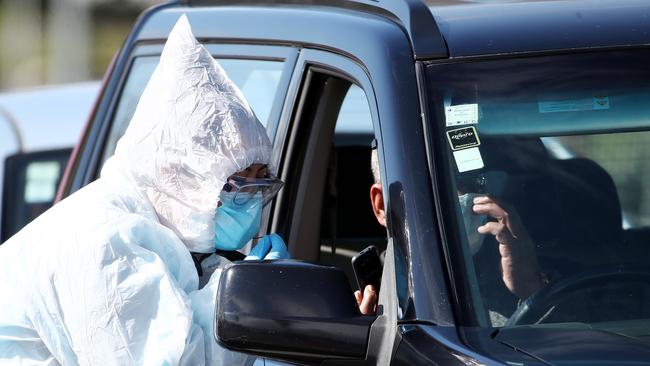
Eradication over suppression is essential, Dr Duckett says, because almost half of Australians are within the high risk category for the virus.
“As it turns out, 40 per cent of the population are in the higher-risk categories. And if we go for a suppression strategy, those people are going to face real dilemma because the virus is going to be bubbling along and they’re at risk of getting it. Do they stay inside forever? And if the virus bubbles along forever there’s a risk of outbreaks, which means we’ll probably go
will be made.”
Originally published as Coronavirus: COVID-19 rules will only eased ‘when virus is truly defeated’
